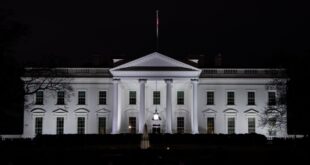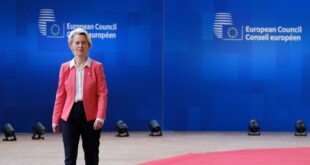By Shehab Al Makahleh •
The USA and the Kurds had on March 18 a meeting which focused on creating an independent Kurdish State in Syria and Iraq to be named “The Great Kurdistan” after the liberation of Raqqa City, the stronghold of Daesh.
Kurdish sources said that the war on Daesh in Raqqa will start in the third week of April 2017 with a main attack on Tabqa Town, 55 kilometers from Raqqa City. The sources added that a new map for both Syria and Iraq will be drawn up after the defeat of Daesh in both countries summer 2017.
The Kurds pointed out that the Americans are working in coordination with Kurdish officials on the paradigm of the new Kurdish state and the autonomous rule, at the expense of both Iraq and Syria, leading to the collapse of both countries and their balkanization into multiple sectarian states.
The USA considers the Kurds as the sole power that has the ability to defeat the Islamist forces in the region. Thus, and in order to preserve the prestige and reputation of the great state, the American administration announced that it will liberate Raqqa from Daesh and its affiliations. Therefore, they will resort to bribing and supporting Daesh leaders financially, paying higher salaries to Kurdish and Free Syrian Army fighters.
The Americans usually call for international cooperation to defeat Islamist groups and to incentivize the Kurds by giving them an independent state as a reward for their efforts. Since 1923, the Kurdish issue has been most acute in Turkey as Kurds have no recognized rights in there, forcing them to fight for independence led by the Kurdish Workers’ Party (PKK), considered “terrorist” organization by the West. This party has bases in Syria under the name of the Democratic Union Party (PYD), and in Iran under the name of Party of Free Life of Kurdistan (PJAK). This explains why the Turkish President Recep Tayyip Erdogan has made efforts to reconcile with the Kurds many times.
The PKK took advantage of the Turkish government hostility to the Kurdish fighters, resuming attacks against Turkish police and border garrisons in 2012, deputizing their branch in Syria to liberate the Kurdish towns and villages: Amouda, Afrin, Qamishli and others in July of 2012. In that year, these towns and cities formed a unity with the Turkish-Kurdish settlements. That was a sign of the inception of the Kurds in both Turkey and Syria to form Northern and Western Kurdistan. This is more than 1200 kilmeters from Iraqi-Iranian borders in the east to Syrian Turkish Borders in the west. The Peshmerga, the Kurdish fighters, have been prepared and trained in an Arab country to fill the power vacuum between Iraq and Syria once Daesh is eliminated, with the aim of founding the Great Kurdistan.
Why a Kurdish state in Iraq and Syria?
The sudden appearance of Daesh in Mosul and Raqqa was unexpected. It meant to pave the way for a Kurdish state away from Turkey. This justifies why Turkish President Recep Teyeb Erdogan was supporting and arming these jihadis in both Syria and Iraq to transfer the Kurds from Turkey to neighboring states: Syria, Iraq and Iran. 55 per cent of the Kurdish people are in Turkey, 25 in Iran, 22 in Iraq and 3 per cent in Syria. Thus, to keep them away from the NATO military bases in Turkey and to reward them for their stand against the jihadis, the Kurds will be given a state in Syria and Iraq where Kurds will have self-government. This was the pretext of the creation of Daesh and its sudden disappearance from both Iraq and Syria in favor of a Kurd state to take over.
The coming weeks are critical for both Syria and Iraq to either keep them unified or to give a green light for creating the Great Kurdistan. And to bring the end of terrorist groups in Iraq, as some analysts close to the US administration say.
In the past few years, before 2011, the Kurds were supposed to be having a state on the borders of Syria, Iraq, Iran and Turkey, mainly taking territories inside Turkey and northern Iraq. This has changed now with Turkish army intervention in northern Syrian territories, paving the way for Kurdish fighters to retake lands occupied by Daesh, filling the vacuum in the reigon before announcing the new Kurdish independent state that groups more than 40 million Kurds.
Some Arab countries and Israel also support Kurdish independence. The de facto state has become a regional pet for the West, prompting them to provide the Kurds with arms and weapons, tailoring special training for the Peshmerga forces to help them protect their borders once demarcated.
 Geostrategic Media Political Commentary, Analysis, Security, Defense
Geostrategic Media Political Commentary, Analysis, Security, Defense





